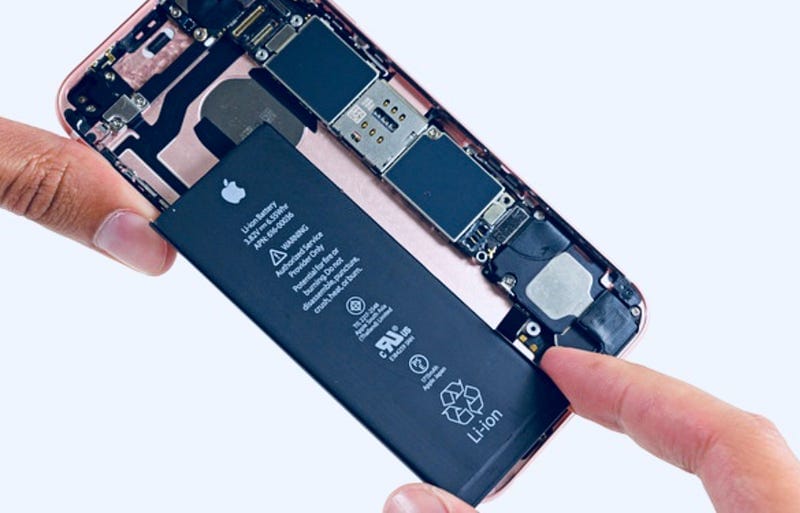That time Apple didn’t let me pay for a new iPhone battery
“It’s too risky”

Earlier this year I bought a used iPhone 6s Plus on eBay. It was a decent phone, but I quickly realised it had a terrible battery. Coconut Battery would go from telling me I had <30% or the normal capacity to, at its peak, telling me I had around 80% of the factory capacity left. This was probably also slowing down my phone considerably, considering the news of the week, but more urgently at the time, it meant that most days my phone would be dead by midday. I’d only bought a Plus-sized phone for the battery, and the experience was disheartening.
So I did what I assumed Apple would have wanted me to. I avoided a cheap 30-minute third-party battery repair and instead went to the Apple Store Genius Bar, with a wad of cash in hand.
The sad thing is I was prepared to pay whatever was needed for a new battery. I didn’t care if they took my phone for a day, or that I’d need to travel close to 4 hours (there and back) to get to the Apple Store. I was desperate for a functional phone.
But things didn’t go to plan. At the Genius Bar I got two responses. One was that my battery was in perfect condition. After I insisted that the phone be tested again I was told that the battery was only slightly aged.
(Having now lived with the a new iPhone, I know that the battery wasn’t normal, and that the battery was definitely not healthy.)
Yet I persisted, to my own discomfort, and asked if I could just get a new battery anyway. I don’t really get worked up in support scenarios, so pretty happily just told the Genius that I would be happy to pay any price for the new battery.
The punchline of my story is that the Genius simply refused to replace the battery. I offered cash, and even said I could come back later if it was a complicated procedure. There was no rush. I just wanted my iPhone to feel normal.
The Genius Bar guy replied that it wasn’t possible, and that the act of replacing the iPhone’s battery was too risky, and could easily result in a broken phone. I asked one more time, again nicely, but left with the same old busted battery. Apparently taking apart an iPhone 6s is too difficult for even Apple to do consistently.
Which leads me to a weird conclusion. I think a lot of people have run with the wrong angle to this week’s Apple battery story. I see no problem with Apple slowing down a device that is less capable of running for an expected period of time, letalone at all.
The problem is that Apple offers no easy solution to a broken battery in the first place.
To test your iPhone officially you need to go all the way to an Apple Store, even though Apple could easily implement a native capacity guide that didn’t require a trip to an Apple Store.
Even worse, when, not if, your iPhone battery loses capacity you need to travel to an actual Apple Store or send your phone away for some other form of official replacement.
But if anything, this whole story is a reminder of the importance of repairability, and perhaps even a newfound need for user-replaceable batteries.
If even a Genius Bar, Apple’s customer-facing support front, won’t replace an iPhone battery then how is a user expected to respond to something that will definitely happen within a year of normal use.
Apple isn’t to blame for performance scaling and issues with battery technology. Though it is to blame for a lack of any solution to this problem, apart from a hit-or-miss replacement program that requires specific approval from whatever Genius you get.
Sadly my response to this whole experience was to reward Apple by buying a new iPhone X. I didn’t feel good about it, but I needed a phone that worked properly.
If I could easily swap the battery out myself, or at the very least, quickly and easily get a new battery from Apple, the problem would be less urgent too.
For Apple the problem isn’t artificial performance downgrades or failing batteries, but rather an inability to actually replace that battery.
And as the current gadget world leader, this means something about the iPhone needs to change


